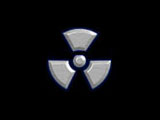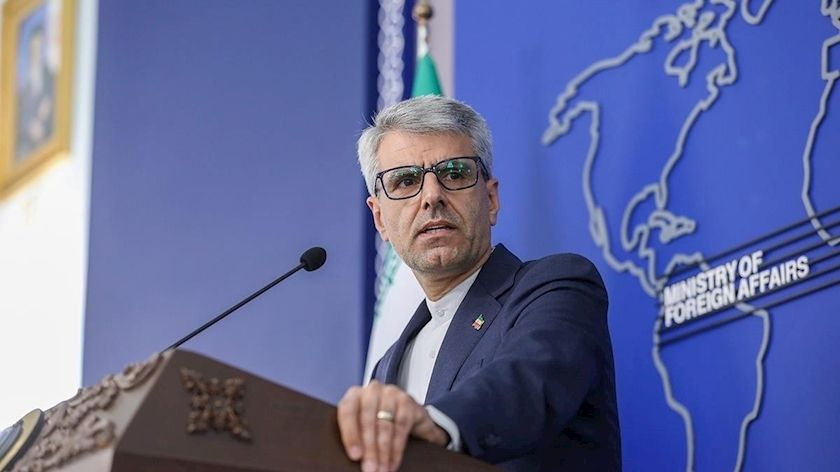|
|
TODAY.AZ / World news
Coordinated efforts of international community can stop Iran's nuclear program
02 April 2011 [11:30] - TODAY.AZ
 International agreements, tightening customs controls over the export, the timely collection and analysis of information at domestic level, interstate cooperation can prevent Iran's illegal transportation of weapons and nuclear materials, as well as prevent the development of weapons of mass destruction, said James Forest, an associate professor at the University of Massachusetts Lowell, in the Department of Criminal Justice and Criminology.
International agreements, tightening customs controls over the export, the timely collection and analysis of information at domestic level, interstate cooperation can prevent Iran's illegal transportation of weapons and nuclear materials, as well as prevent the development of weapons of mass destruction, said James Forest, an associate professor at the University of Massachusetts Lowell, in the Department of Criminal Justice and Criminology."In terms of preventing weapons smuggling, the two primary approaches are international agreements (nuclear treaties, chemical and biological conventions, etc.) and domestic-level export controls, Forest wrote in an e-mail to Trend. In both cases, we rely on each individual country to be a responsible member of the international community."
Media reported about the arrest of several vessels and aircraft belonging to Iran in March.
Turkey seized the cargo carried on board of a cargo aircraft en route from Iran to Syria in the second half of March. This was the second Iranian aircraft that has been delayed by Turkey in an attempt to search for the possible presence of materials and equipment on board prohibited by UN Security Council resolution.
The Israeli Navy intercepted a Victoria ship in the Mediterranean en route from Turkey to Egypt carrying a large shipment of weapons on March 15. Israeli Prime Minister Benjamin Netanyahu stated that weapons were of Iranian origin and destined for militants in the Gaza Strip.
Later, Iranian Defense Minister Ahmad Vahidi vehemently refuted Israel’s statements.
Media also spread information about the confiscation by the border authorities of South Korea and Singapore of cargoes containing suspicious nuclear materials and weapons destined for Iran in March.
Two batches of contraband materials were detained at the Seoul airport in December and at the Singapore port in September 2010. The cargo also included more than 400 suspicious vessels with radioactive raw materials, and aluminum powder, which could be used to create nuclear warheads.
The Nigerian secret service seized three containers with rockets, hand grenades, ammunition and other weapons in the port of Lagos in October 2010. The containers were shipped from the Iranian port of Bandar Abbas. Dispatcher later sought to have the containers were re-loaded and shipped to the Gambia. Iran stated that the weapons were sent by a private company.
Forest said most countries do a good job with this, but some have been either unable or unwilling to do their part.
"That is why, in April 2004, the UN Security Council adopted Resolution 1540 which requires states to criminalize the proliferation of WMD and related materials, enforce export controls, and secure dangerous materials within their borders," he said.
But Forest believes still some countries are known to cheat the system, and other countries have not responded to the demands that they tighten controls over their exports or customs enforcement.
"Perhaps for them, the economic issues of supply and demand are seen as more important than international responsibilities," said the expert.
Despite this, Forest believes that it's impossible, though, to envision the international community applying harsh penalties or sanctions against another country for being irresponsible. "So, there's certainly a dilemma there," he said.
He said it appears Iran can only proceed with its nuclear program through illegal trafficking activities like these.
"Despite that Iran has built a vast network of uranium mines, enrichment plants, conversion sites, and research reactors, and some of them are quite expansive, but there are limitations to what they can do without material and supplies from other countries," he said.
Forest said Iran does not want their scientists and facilities to sit around dormant while they wait for essential parts or materials. "So, when their first attempt to acquire what they need fails, they redouble their efforts again and again until they succeed, in order to get their program back on track," he added.
Iranian nuclear program has caused concern since 2003, when the IAEA became aware of its concealed activity. In late 2003, Iran signed the Additional Protocol to the NPT and voluntarily announced about the suspension of uranium enrichment. However, it returned to this activity.
The enriched uranium can be used to produce nuclear weapons. However, it is necessary as fuel for atomic power plants. Several countries, including the U.S., are sure that Iran strives to develop nuclear weapons and call for to prevent this development.
So far, the UN Security Council adopted six resolutions, four of which are aimed at imposing sanctions against Iran, demanding to abandon uranium enrichment, and two resolutions containing warnings.
The expert said all in all, intelligence collection and analysis is critical here - not just at the IAEA, but also at the national level as well as bilateral, regional, multinational cooperation.
"Using technical means, human intelligence, and on-site inspections, there are ways to detect signatures and indications of weapons program," said Forest.
"You can look for Iran's purchases of unique combinations of chemical precursors and equipment; the presence of equipment for weaponization of chemicals, biological agents, radiological materials or fissile materials; or just the presence of trace amounts of chemical warfare agents, biological warfare agents, or radioactivity left behind by some sort of scientific activity," the expert said.
"But with the case of Iran, and a few others, the dual-use technology problem gets in the way - they claim to be developing a peaceful nuclear energy program, said Forest. The technologies and materials they are seeking to acquire could be used for both peaceful and non-peaceful purposes."
According to expert, what sets the balance of suspicion against Iran is that the Iranian President Mahmoud Ahmadinejad who, in October of last year, stood on southern Lebanon and threw a rock toward the Israeli border to "show his hatred" toward another country.
"Whenever we see such symbolic hatred toward fellow human beings, we worry," Forest added.
/Trend/
URL: http://www.today.az/news/regions/83632.html
 Print version
Print version
Views: 1827
Connect with us. Get latest news and updates.
See Also
- 16 October 2025 [08:00]
Instagram introduces new content guidelines for teen accounts - 15 October 2025 [22:48]
Global demand for chocolate plunges - 15 October 2025 [21:50]
Apple commits to boosting investment in China - 15 October 2025 [09:00]
Singapore develops drone window-washing technology - 15 October 2025 [08:00]
Dubai is becoming top global tourist destination - 14 October 2025 [23:45]
Microsoft discontinue support for Windows 10 - 14 October 2025 [22:21]
Ford halts production of some models amid supply issues - 14 October 2025 [20:45]
Seoul plans construction of its first civilian nuclear shelter - 14 October 2025 [18:27]
Kazakhstan seeks long-term oil supply agreements with Azerbaijan - 14 October 2025 [09:00]
European country introduces new biometric border system
Most Popular
 Azerbaijan set to handle 15 mln tons of rail cargo annually
Azerbaijan set to handle 15 mln tons of rail cargo annually
 Why couldn't Azerbaijan not be in Sharm el-Sheikh
Why couldn't Azerbaijan not be in Sharm el-Sheikh
 Mustafayev: Trilateral dialogue strengthens Azerbaijan–Iran–Russia partnership
Mustafayev: Trilateral dialogue strengthens Azerbaijan–Iran–Russia partnership
 Azerbaijan, Iran, and Russia adopt communiqué to enhance cooperation on North-South transport corridor
Azerbaijan, Iran, and Russia adopt communiqué to enhance cooperation on North-South transport corridor
 Afghanistan-Pakistan clashes leave scores dead amid rising tensions
Afghanistan-Pakistan clashes leave scores dead amid rising tensions
 Trilateral consultations in Baku highlight regional cooperation agenda - Iranian FM
Trilateral consultations in Baku highlight regional cooperation agenda - Iranian FM
 Revanchists try to gather people again. And money. And it is not known what they need more
Revanchists try to gather people again. And money. And it is not known what they need more
